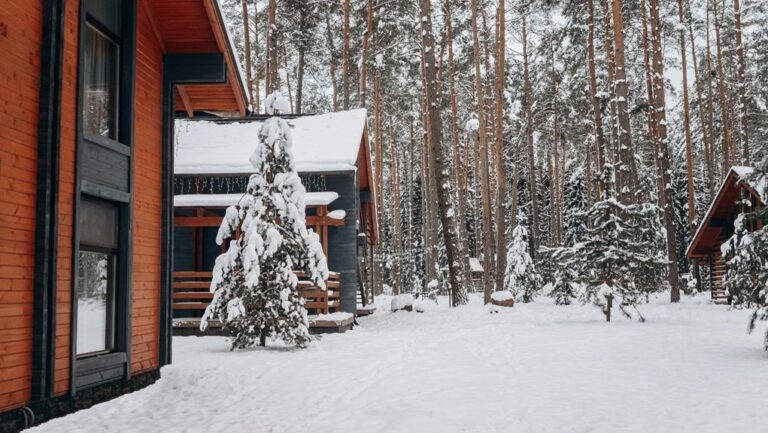Do Hindus Celebrate Christmas
You may be surprised to learn that many Hindus celebrate Christmas, blending their customs with Christian traditions. Approximately 73% of Hindus in America observe Christmas in some form, often combining secular customs like gift-giving and tree decorating with their own family gatherings, which fosters interfaith dialogue and highlights shared values of love, family, and community. Many Hindus view Jesus as an avatar or divine incarnation, and the cultural significance of Christmas resonates with Hindu values of love, compassion, and family togetherness. As you explore these connections, you'll discover the complex and inclusive nature of Hindu celebrations.
Hindu Participation in Christmas
As you explore the world of Hindu celebrations, it's striking to find that many Hindus do participate in Christmas festivities, albeit in a way that's distinct from the traditional Christian holiday. This includes decorating their homes with Christmas lights and trees, exchanging gifts, and even attending Christmas parties. While the religious significance of Christmas may not be observed by Hindus, they often appreciate the spirit of joy and charity that the holiday represents. Last for Christmas, many Hindus embrace the opportunity to come together with family and friends to celebrate love and togetherness, making it a meaningful part of their cultural experience.
Approximately 73% of Hindus in America observe Christmas in some form, often engaging in non-religious traditions like gift-giving and tree decorating.
Many American Hindus blend their customs with Christmas elements, decorating homes with lights and ornaments while emphasizing family gatherings.
This unique fusion reflects a balance between traditional Hindu customs and American cultural practices.
By participating in Christmas, Hindus foster interfaith dialogue, highlighting shared values of love, family, and community.
This blending of Hindu customs with Christmas adaptations has become an integral part of the American Hindu identity.
Hindu Festivals Around Christmas
As you explore Hindu celebrations around Christmas, you'll notice festivals like Pancha Ganapati, a five-day celebration that aligns with the spirit of Christmas by emphasizing family harmony and community values.
This Hindu festival, celebrated around the same time as Christmas, involves daily themes and gift exchanges that promote unity and charity.
Pancha Ganapati Celebrations
When you're looking for Hindu festivals around Christmas, one celebration that stands out is Pancha Ganapati. This five-day celebration honors Lord Ganesha, emphasizing family harmony and new beginnings.
Each day features unique themes, color decorations, and festive rituals that foster family bonding and cultural appreciation. On the final day, gift exchanges take place, promoting values of charity and community.
As you participate in Pancha Ganapati, you'll experience a blend of Hindu traditions and the festive spirit similar to Christmas, highlighting the importance of togetherness.
The festival's focus on family harmony and new beginnings aligns with the broader themes of love and generosity celebrated during Christmas, making it a unique and meaningful celebration around the same time.
Hindu Community Festivals
Pancha Ganapati is just one example of a Hindu festival celebrated around the same time as Christmas.
As you explore Hindu festival traditions, you'll find that Pancha Ganapati isn't an isolated instance of overlap with Christian celebrations. Hindu festivals often reflect values of charity and community, aligning with Christmas's broader themes of love and generosity.
This alignment fosters interfaith dialogue, showcasing the inclusive nature of Hindu practices and the importance of shared values. You may find that some Hindu communities choose to celebrate both Pancha Ganapati and Christmas, highlighting the blending of Hindu and Christian traditions within multicultural communities.
This blending illustrates the adaptability of Hindu festival traditions and their capacity for interfaith celebrations.
Cultural Significance of Christmas
A significant majority of American Hindus, around 73%, celebrate Christmas, often adopting secular customs like gift-giving and tree decorating into their festivities.
You might wonder what draws them to this holiday. The answer lies in the cultural significance of Christmas, which aligns with Hindu values of love, compassion, and family togetherness. This convergence of values fosters a sense of community and cultural exchange.
Here are three ways Christmas symbolism is relevant to Hindus:
- Unity in diversity: Christmas promotes unity among diverse communities, a value deeply ingrained in Hindu philosophy.
- Inclusive spirit: The holiday's inclusive nature resonates with Hindus, who respect and accept various cultural and religious practices.
- Festive traditions: Many American Hindus blend their own traditions with Christmas customs, creating unique celebrations that reflect both Hindu and Christian influences.
Hindu Views on Jesus and Christmas
As you explore Hindu perspectives on Christmas, you'll find that many Hindus have a unique view of Jesus, seeing him as an avatar or divine incarnation who embodies universal values.
You may be interested to learn that some Hindus view Jesus as a messenger of God, and in doing so, reflect a broader acceptance of Christianity as a valid spiritual path.
This inclusive approach is reflected in the way many Hindus celebrate Christmas, often focusing on the holiday's cultural and social aspects rather than its strictly religious significance.
Significance of Jesus
Within the diverse mosaic of Hindu beliefs, Jesus holds a unique place as a revered figure, often considered an avatar or divine incarnation. You might be surprised to learn that many Hindus view Jesus' teachings as aligned with Hindu principles, emphasizing love, compassion, and moral duty (dharma).
Here are some key points to understand the significance of Jesus in Hinduism:
- Shared values: Jesus' teachings on love and compassion resonate with Hindu principles, fostering a sense of reverence among Hindus.
- Historical connections: Claims of Jesus' time in India, studying Hindu and Buddhist teachings, contribute to his revered status.
- Symbolic connections: The symbolism of light in Christmas and Hindu festivals like Divali underscores a shared cultural appreciation for hope and enlightenment, highlighting the significance of Jesus in Hinduism.
Hindu Views on Christianity
Considering the significance of Jesus in Hinduism, it's natural to wonder how Hindus view Christianity as a whole. You might be surprised to learn that many Hindus view Jesus as an avatar, or divine incarnation, and acknowledge the similarities between his teachings and Hindu philosophy.
This blending of cultural practices fosters interfaith dialogue and understanding. Approximately 73% of Hindus in America participate in Christmas festivities, which often emphasize non-religious traditions such as family gatherings and community events.
Historical claims also suggest Jesus may have spent time in India, studying at Hindu learning centers, further aligning his teachings with Hindu philosophy. This shared understanding highlights the common values of hope and togetherness present in both Christmas and Hindu festivals like Divali.
What Religious Holidays Do Hindus Celebrate Besides Christmas?
Besides Christmas, Hindus celebrate several religious holidays such as Diwali, Holi, and Raksha Bandhan. These festivals hold significant cultural and spiritual importance for Hindus around the world. While Hindus don’t Celebrate Christmas, they have a rich tradition of their own festive occasions.
Symbolism of Light in Festivals
Light is a powerful symbol that plays a central role in many festivals around the world, and both Divali, the Festival of Lights celebrated by Hindus, and Christmas are no exception.
You'll notice that both festivals associate light with the triumph of good over evil and the arrival of hope. This light symbolism isn't unique to either festival, but rather a shared theme across cultures.
Here are three key similarities in the light symbolism between Divali and Christmas:
- *Shared spiritual significance*: The universal prayer during Divali resonates with Christian beliefs about Christ as the Light of the World.
- *Cultural appreciation for light*: Both festivals encourage the community to come together in joy and reverence, reflecting a common cultural appreciation for light as a symbol of divine presence and guidance.
- *Use of light in celebrations*: Both Divali and Christmas include the lighting of candles and decorations to signify the triumph of good and the arrival of hope.
Hindu Community and Interfaith Relations
A significant number of Hindus in America, around 73%, participate in Christmas celebrations, often incorporating non-religious traditions like gift-giving and decorating trees into their festivities.
This blending of customs highlights Hindu values like adaptability and inclusivity, which facilitate interfaith dialogue. By embracing Christmas, Hindu families can connect with their American communities, fostering mutual respect and understanding.
Interfaith dialogue is further encouraged through community events that bring people together, promoting shared values like love, family, and generosity.
As Hinduism emphasizes the importance of harmony and charity, participating in Christmas celebrations can be seen as an extension of these principles, demonstrating the potential for interfaith relations to enrich our lives and communities.
Christmas Traditions in India
In India, Christmas celebrations have become an integral part of the country's diverse cultural landscape. As you experience the festive atmosphere, you'll notice that Christmas decorations are an essential aspect of the celebrations, with homes and streets adorned with lights and flowers.
Here are some unique Christmas traditions in India:
- *Festive gatherings* with friends and family, where traditional dishes and sweets are shared, emphasizing the spirit of giving and community bonding.
- *Interfaith celebrations* in urban areas, where Hindus and Christians come together, promoting cultural exchange and understanding among different religious communities.
- *Cultural exchange* programs and events that highlight the inclusive nature of Hinduism, allowing for the blending of various cultural traditions and the celebration of universal values of goodwill and togetherness.






